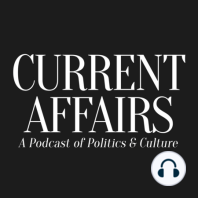2 min listen
Dreaming of a World Without Wells Fargo (w/ Terri Friedline)
FromCurrent Affairs
ratings:
Length:
39 minutes
Released:
Jan 12, 2024
Format:
Podcast episode
Description
Terri Friedline is an associate professor of Social Work at the University of Michigan. She's also a contributor to Current Affairs, where she published one of our most unusual pieces ever: a piece of speculative utopian fiction about the end of Wells Fargo. Terri is also the author of the excellent book Banking on a Revolution: Why Financial Technology Won't Save a Broken System. Today, Terri joins to explain why Wells Fargo is so pernicious that she wrote a story imagining its obliteration. She explains how ordinary people are hurt by a financial system that concentrates so much power in a few giant mega-banks, and what the practical alternative to a world of Wells Fargos and JP Morgan Chases is. We talk about public banking projects and their prospects. We also talk about the way that "financial literacy education" perniciously tries to get people to accept responsibility for personal financial difficulties that are the result of systemic injustices, and what liberatory financial education (of the kind Friedline herself teaches) looks like."Eighteen years ago, a bank closure wouldn’t have gotten this kind of attention. Fortunately, things changed. People were radicalized by an onslaught of environmental and economic catastrophes, bank scandals (especially scandals involving Wells Fargo), and a creative use of financial education that, collectively, brought banks’ power into sharp focus. Banks spent millions of dollars each year telling people to take responsibility for their finances and budget their way out of poverty. Organizers and academic researchers like myself started to leverage the financial education that banks had financed. We didn’t just teach people how to contest their overdraft fees or fix errors on their credit reports. We taught popular education and built political power. We explained how private banks make money off of dubious account fees and how proprietary credit scoring algorithms surveil and discriminate. So, many people were ready to celebrate the closure of a bank that had once been deemed 'too big to fail.'" — Terri Friedline Listeners may also be interested in our recent conversation with the New York Times' Emily Flitter, who covers racism in the banking sector.
Released:
Jan 12, 2024
Format:
Podcast episode
Titles in the series (100)
Bonus excerpt: All's Well That Endzone: An excerpt from today's bonus episode, available in full to our Patreon patrons, in which, just in time for the beginning of the season, amusements editor Lyta Gold and legal editor Oren Nimni discuss all things football: its labor politics, its racial politics, and why (according to Lyta) it is the masculine version of drag. by Current Affairs
